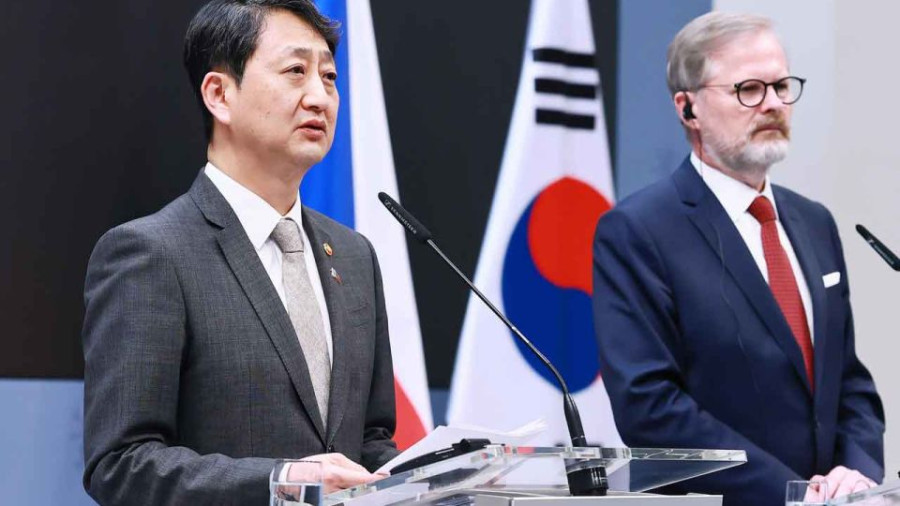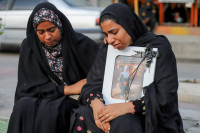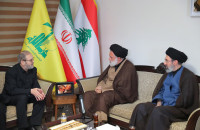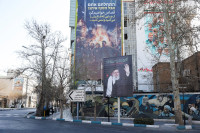World
South Korea-Czech nuclear deal advances despite court injunction
South Korea and the Czech Republic reaffirmed their commitment on Wednesday to advance their $18 billion nuclear power plant construction deal and expand cooperation across key industrial sectors
The Korea Herald
The deal was postponed after a court injunction was granted in response to a legal challenge by French energy company EDF, an unsuccessful bidder in the tender.
South Korea and the Czech Republic reaffirmed their commitment on Wednesday to advance their $18 billion nuclear power plant construction deal and expand cooperation across key industrial sectors, despite a court ruling that temporarily delayed the contract signing.
The Czech government approved Elektrarna Dukovany II, a subsidiary of Czech state utility CEZ, to proceed with the contract to build two nuclear reactors with Korea Hydro & Nuclear Power at the “earliest possible timing,” during a Cabinet meeting on the day.
The deal, originally slated to be signed the same day, was postponed after a court injunction was granted in response to a legal challenge by French energy company EDF, an unsuccessful bidder in the tender.
Czech Prime Minister Petr Fiala said the government would “avoid any delay of even a single day,” expressing his willingness to complete all related procedures as soon as the legal obstacles are cleared.
“Korean Hydro & Nuclear Power’s proposal is the best in every respect and has been selected as the supplier,” he said during a press conference following a meeting with South Korean Industry Minister Ahn Duk-geun and the Korean delegation.
According to a statement released by the Czech government, Finance Minister Zbynek Stanjura affirmed the integrity of the bid evaluation process.
“We are convinced that the bid evaluation process was carried out correctly and in accordance with applicable laws. I believe the court will rule quickly so that we can continue preparing for the construction of new nuclear units and the state does not suffer any damage due to the delay,” he said.
With the Czech government’s backing, the deal is poised to move forward once CEZ’s appeal against the injunction, filed by EDF, is accepted.
The Czech state utility firm confirmed it plans to submit an appeal next week to the Czech Supreme Administrative Court against the Brno Regional Court’s preliminary injunction ruling.
The Korean minister also expressed confidence in keeping the bilateral agreement intact.
“While today’s unforeseen circumstances prevented us from finalizing the main contract, I feel confident that — like the saying ‘the ground hardens after rain’ — this shared challenge has only strengthened the trust between our two countries,” Ahn said during a press briefing.
The project — the largest public procurement initiative in Czech history — involves building two 1,055-megawatt reactors at the Dukovany site. It marks Korea’s first nuclear export since 2009, with construction scheduled to begin in 2029 and the first reactor expected to be operational in 2036.
Ahn emphasized that the Dukovany nuclear project could serve as a springboard for the two countries to jointly expand into third-country markets.
Korea is currently constructing two domestic new nuclear reactors: the Shin Hanul 3 and 4. With the additional two reactors planned for the Czech Republic and ongoing talks with other countries, Korea’s domestic ecosystem alone will not be sufficient to meet all demand, the minister explained.
“That is why we aim to leverage Czech assets — for example, turbine manufacturers like Doosan Skoda Power — and grow together as strategic partners in the global market,” Ahn said.
Acknowledging the unexpected delay caused by the Brno Regional Court’s preliminary injunction, Ahn described it as purely “procedural” and not indicative of any risk of cancellation.
“Once we clarify the facts to the Czech public, I believe this could become a positive turning point, especially for future projects like Temelin,” he said. “Our goal is to present Korea as the most reliable long-term partner for 50-, 60- even 100-year nuclear projects.”
During the meetings with Czech Prime Minister Fiala and Senate President Milos Vystrcil, the two sides agreed to strengthen their strategic partnership not only in nuclear energy, but also in advanced manufacturing, supply chains, energy, high technology and applied sciences.
Among the 14 agreements and memorandums of understanding signed by the two governments and companies on Wednesday were a Korea-Czech battery cooperation deal and a commitment to strengthen joint responses to the forthcoming EU Battery Regulation.
— In Association with Asia News Network




 10.95°C Kathmandu
10.95°C Kathmandu















